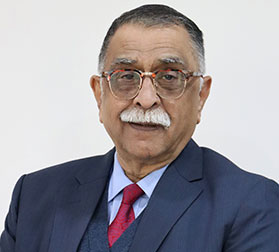.jpg)
Bangladesh in the election year

Her opponents exploit any flaw in Hasina’s governance in an ongoing campaign to adversely impact her electoral chances.
The Bangladesh Nationalist Party (BNP), the chief rival, is alleging that the current economy of Bangladesh is showing signs of a slowdown and may go the Sri Lanka way with no chances of any recovery.
In the same steam, the opposition has made a major issue on Nobel Laureate Dr Muhammad Yunus, formerly of Grameen Bank. It may be recalled that forty prominent foreign nationals belonging to different spheres of activity, inserted an advertisement in the influential daily, Washington Post, calling for recognition of Dr Yunus’s seminal contribution to Bangladesh and its welfare through microcredit schemes for poverty alleviation. The signatories include former US President Bill Clinton and the erstwhile United Nations (UN) Secretary General Ban Ki Moon. Prime Minister Sheikh Hasina has reacted angrily to this campaign and many of her supporters in the academic world have unanimously denounced the international move alleging the state harassment of Dr Yunus. While the Yunus issue may not significantly affect Hasina’s election, it might sully the image of Bangladesh in international circles especially among those in the western world who are questioning the neutrality of the forthcoming parliamentary elections. Prime Minister Hasina and her supporters hold Yunus’s welfare approach had adverse impacts.
On the communal front, Bangladesh under Sheikh Hasina, continues to grapple with the problems of communal strife where the minorities are intermittently and violently targeted by a section of majority community which include moves to desecrate religious places, usurp minority property, and in some cases, forcible conversions.
In a recent incident, Ahmadiyya Muslims were attacked by the bigots in Panchagarh, northern Bangladesh. As in the past when the followers of the sect as well as other religious minorities, notably Hindus, have borne the brunt of fanatical fury by radical elements of the majority Muslim section of the country’s population, the assault in Panchagarh took place while the community was busy preparing to hold its Salana Jalsa. Two died in the attacks, the conference venue was destroyed and Ahmadiyya homes were looted. The police and other security forces failed to control the violence. Afterwards, the police let the media know that investigations were going on to identify those behind the attacks. Home Minister Asaduzzaman Khan pointed the finger of blame at the Jamaat-e-Islami and its ally, the Bangladesh Nationalist Party (BNP), for spearheading the violence. However, the BNP responded by blaming the ruling Awami League (AL) for having staged the attack on Ahmadiyyas to malign the BNP. According to columnist Syed Badrul Ahsan, this incident once again exposes the self-gratifying slogan that Bangladesh is a land of communal harmony. Calling it a shame that does not go away, despite the assurances of the nation's Prime Minister that no one will be permitted to destroy communal harmony in the country. The Prime Minister's statement has been given short shrift by those who undermined their own faith by going after the faith of others.
It is time for Bangladesh, with all the force and power at its command, to strike back at these elements who have once again torched homes, have presided over the murder of citizens and have brought the state once more to this terrible pass.
Notwithstanding some stray incidents of a communal nature, we should not judge the country’s governance in a negative light. Instead, the present dispensation merits commendation where its leadership is making sincere efforts in battling the roots of the communal problem.
In this regard, the country’s Education Minister, Dr Dipu Moni, must find mention for trying to usher in the scientific temper into the madrassa system of education.
In a very recent observation, she has questioned the madrassa leadership for not pursuing science and focusing on namaz and the construction of madrassas. Her statements are a promise for a progressive future in an obvious attempt to contain communal trends in the country. However, such thoughts are required from all progressive and modern leaders. Such ideas will then ensure that Bangladesh surges ahead as a modern nation. After all, it has successfully completed more than fifty years as an independent country and its founding father Bangabandhu Sheikh Mujibur Rahman had envisioned a secular and progressive Bangladesh with no religious discrimination. March is the month of independence for Bangladesh as well as the birth month of Sheikh Mujibur Rahman.
Again, this year being the election year, it is all the more imperative on the part of the Bangladeshi leadership to outline its priorities with communalism and terror threats. Its economy, though on track with strong signs of growth, needs further improvement.
Socially, Bangladesh has forged ahead with numerous successes including remarkable achievements in women emancipation with their representation in almost all fields of activity especially in politics, teaching, banking, science, medicine, policing and other significant areas. In the month of Independence, renewed efforts to uplift the women to newer heights will further refurbish the image of Bangladesh. This will also be an inspiration to other countries in the region particularly in the Islamic world.
Prime Minister Hasina and her team need to take tough measures to neutralize anti-progressive forces as in the election year all eyes are trained towards Bangladesh and its nearly sixteen crore people. On the external front, Bangladesh is maintaining excellent relations with India and other countries and is constantly reaching out to other nations as well with dignity and self-esteem. This momentum needs to be consistently kept up even after the elections.
(Exclusive to NatStrat)